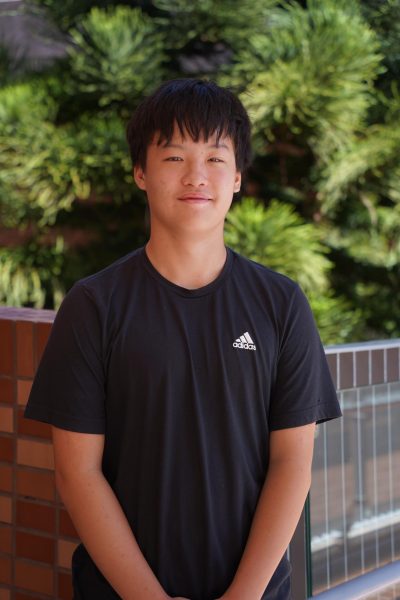At Taipei American School (TAS), technology plays a massive role in the daily lives of all students, from Canvas to Brawl Stars. Due to the large presence of technology, TAS has quite an extensive WiFi system. While TAS does provide wifi, the system is disliked by many students. When interviewed, most students had complaints about speed, blocked sites, and security systems.
When the Blue and Gold interviewed the head of technology, Mr. Steven Sung, we first wanted to know about how the TAS WiFi system operates. “TAS Wi-Fi has 6 IP addresses,” says Mr. Sung, “the acceptable number of users for each IP address is 1000 users,” he added. Due to the school’s large size, several routers and access points are required to connect students and faculty. “We place these routers based on feedback from our users and wifi data collected by the systems,” said Mr. Sung. These areas include busy spots like the cafeteria and the library, which contain a higher concentration of wifi users.
Addressing complaints, the first one that we asked him was WiFi speed. While Mr. Sung acknowledges that the WiFi system is imperfect, one of his core answers for improvements was feedback. “We need to know about troubles with our WiFi systems to address it. [Without feedback from students,] we don’t know what problems we have.”
Another complaint that was addressed was the large number of sites that TAS WiFi blocks. Mr. Sung has a very direct answer to this. “TAS WiFi is supposed to be for educational purposes. We block sites if they are deemed inappropriate by administrators, or if they do not benefit the academics of students.”
A further complaint from students was the constant presence of Captcha when searching online. It may be surprising to learn that this is, in fact, partly the students’ fault. A completely Automated Public Tuning test to tell Computers and Humans Apart (CAPTCHA), is a type of security measure to detect whether humans truly input commands to ward off robot attacks. The reason for their presence when browsing is actually due to Virtual Private Network (VPN) use. Students at TAS, who wish to engage on platforms such as video games and social media (which are blocked by the TAS WiFi), often utilize VPNs to do so. When students use VPNs, the IP links view them as a potential malware attack, which results in the endless CAPTCHAs.
So what do we all do? The students should email teachers about WiFi dead spots and limit VPN usage for their complaints to be addressed. As for the administration, we recommend that separate restrictions and safeguards exist for Lower/Middle School and Upper School. While we understand that safeguards exist for the safety of students, we do feel that having the same safeguards for all grades is unreasonable. Additionally, students also need to make an effort to appreciate the hard work of our IT administrators to make WiFi usage possible. This is something that shouldn’t be taken for granted.

![Wifi router in the courtyard outside the cafeteria at Taipei American School.
[MATTHEW WANG/THE BLUE & GOLD]](https://blueandgoldonline.org/wp-content/uploads/2025/03/IMG_3456-e1741410776380-1200x936.jpeg)
![A myriad of impressive trophies and awards. [ANNABELLE HSU/THE BLUE & GOLD]](https://blueandgoldonline.org/wp-content/uploads/2025/09/Awards2-1200x512.jpeg)
![Students' calendars say goodbye to exam week. [ANNABELLE HSU/THE BLUE & GOLD]](https://blueandgoldonline.org/wp-content/uploads/2025/09/Exam-week-1200x740.jpg)
![A collection of college flags. [PHOTO COURTESY OF AMBER HU ('27)]](https://blueandgoldonline.org/wp-content/uploads/2025/05/IMG_5029-1200x577.jpeg)

![An SAT word cloud. [PHOTO COURTESY OF WORDCLOUDS]](https://blueandgoldonline.org/wp-content/uploads/2025/05/SAT.jpeg)
![Collage of banned books, including “The Handmaid’s Tale” by Margaret Atwood. [MINSUN KIM/ THE BLUE & GOLD]](https://blueandgoldonline.org/wp-content/uploads/2025/04/IMG_4274-1200x681.jpeg)
